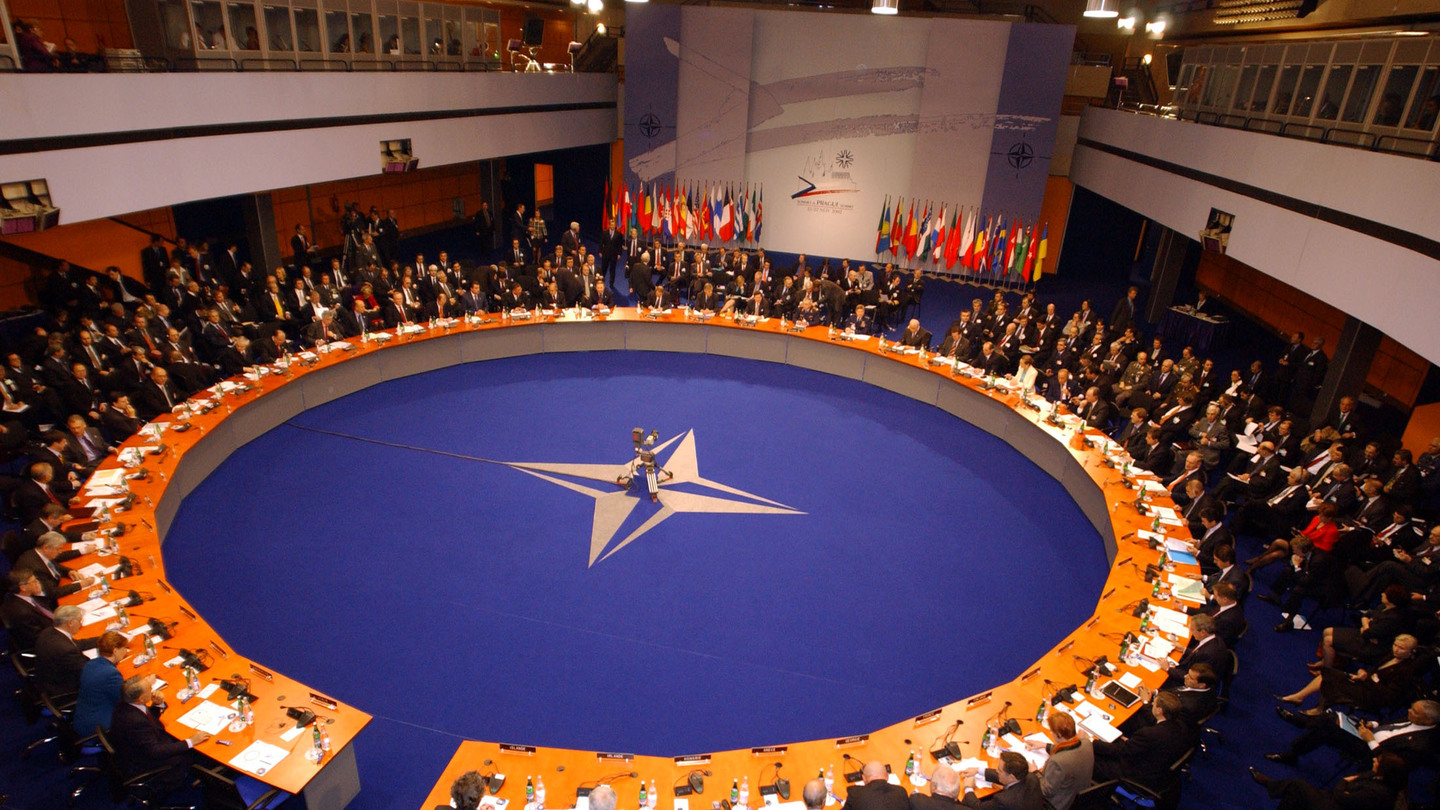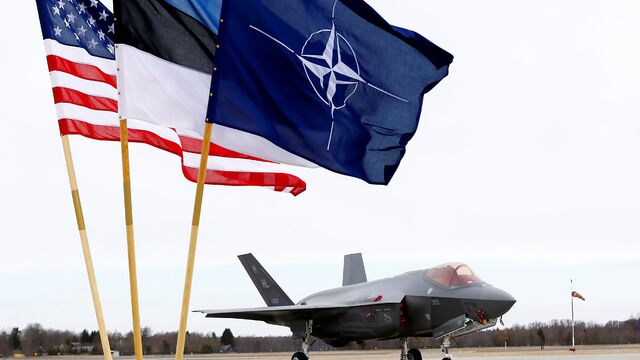NATO: Towards a new Strategic Concept

The new threats and challenges the Euro-Atlantic area is facing pose the question of whether it is the right moment for a new Strategic Concept to be developed.
The Strategic Concept is NATO’s authoritative strategic document, which describes the Alliance’s goals, challenges and means to meet its security goals and requirements. Strategic Concepts are updated more or less every 10 years to take account of changes in the global security landscape and to ensure that the Alliance is prepared to fulfil its tasks. This article briefly analyses the changed threats and challenges NATO faces since the publication of the current Strategic Concept (2010) and argues why it should develop a new document anytime soon.
The current Strategic Concept
The Strategic Concept published at the Lisbon summit in 2010 reflects the experiences and lessons learnt from 9/11 and the fight against Islamic terrorism, especially the NATO-led ISAF mission in Afghanistan. The three NATO essential core tasks underlined in it, are the principles of collective defence, crisis management and cooperative security. Plus, it emphasizes solidarity between allies, the importance of transatlantic consultation and the need to engage in reform processes. Among the threats to be faced by the Alliance from 2010 onwards, the Strategic Concept includes the proliferation of ballistic missiles and nuclear weapons, terrorism, cyber-attacks and various environmental problems. When promoting security, a key element is cooperation, which must take place at different levels and areas, such as at the reinforcement of arms control, through disarmament and non-proliferation efforts and by enhancing partnerships with different actors and in different regions of the world, among others.
What’s new since 2010?
Today, seven years after the current Strategic Concept was published, there are several main reasons to argue that the security environment has changed. The first of them is Russia’s changed role and behaviour. In 2010, NATO aimed for a true strategic partnership with Russia. Some of the members from Eastern Europe took a critical stance on Russia, but the majority agreed on the idea of a common European security order that included it. However, with the illegal annexation of Crimea in 2014, Putin did not only alter the basis for such a cooperative relation but turned against the European security order itself. It is also important to note that Russia’s changed behaviour does not only apply to Ukraine. Nuclear threats against Western neighbours, test flights with nuclear bomber aircrafts or President Putin’s announcement that Russia could overrun the Baltic States within a matter of days have contributed to the crisis in Eastern Europe as well.
Another reason why the security environment has changed is the instability in the Middle East and North of Africa (MENA) region. Countries that are usually defined as belonging to MENA include Afghanistan, Algeria, Egypt, Iraq, Jordan, Syria or Yemen, among others. Given continuous civil wars and conflicts taking place in the North of Africa and the Middle East, the rush of migrants has been increasing since 2010. Plus, major cities in the Euro-Atlantic area have suffered terrorist attacks from the so called “Islamic State” (IS) of Iraq and the Levant. NATO works very hard to provide stability on the Eastern flank, but it must also address the needs of member states on the Southern flank in order not to get obsolete, and to be able to fulfil its primary task, guaranteeing security for its members. In this context of MENA, it is argued that an article 5 threat would be possible in a scenario of a hypothetical devastating attack by IS against, for example, a NATO member such as Turkey (if the consequences were analogous to a military aggression).

source: commons.wikimedia.org
It is also important to consider the European Union’s new situation after the United Kingdom’s decision to leave. The UK still wants to be involved in Euro-Atlantic security affairs –being a properly functioning NATO central to May’s view of British security-, and so does the EU, which has now lost its strongest military power. For this reason, the European Union would be more willing than ever before to cooperate with NATO. The EU has already started to catch up on security matters, for instance with the creation of a defence fund to streamline military research, development and procurement. This and other actions would make the European Union a more attractive partner for NATO.
Important also is the election of Donald Trump as the new President of the United States. After his dubious and polemic declarations during the electoral campaign and his first months in the presidency, Trump is implementing all US commitments to NATO, and he has even asked the Congress to increase the budget of the European Reassurance Initiative (supporting the US security presence in Europe) from $3.4 billion to $4.8 billion. It can thus be said that, so far and in spite of his unpredictability and discontent with the current state of the 2% initiative, Trump’s administration is one of continuity when it comes to security policy, as was his predecessor’s.
Further challenges to be considered are developments in the Asia-Pacific region, such as the economic and military growth of China or the presence of nuclear powers, such as North Korea, India or Pakistan. In a region where also the United States is exerting its influence, the potential for violent conflict is real.
Is it the right time for a new Strategic Concept?
All the above mentioned are, in addition to issues that should be reflected on a new Strategic Concept, reasons to actually write and publish a new document. However, there are some reasons to believe that this might not be the best time to do so. The first of them is that there is always a risk with getting a document started. Once the drafting begins, the old document must be replaced by a new one, otherwise NATO’s credibility and unity would be doubted. Secondly, the relationship between member states and the trust between them is particularly complicated at the moment. This is mainly due to some allies’ lack of faith and trust on Trump’s USA, the different strategic priorities of member states and the already existing East-South gap, Turkey’s recent developments, etc. This kind of uncertainty is argued not to create the circumstances in which NATO member states could agree on a new strategy. The main argument here is that a debate around a new Strategic Concept would increase tensions, and it would weaken allied solidarity instead of strengthening it. The final major counterargument to a new Strategic Concept is that since the Alliance already reacted to major changes at the Wales and Warsaw summits, through the publication of elaborate declarations and working papers, the revision of the Strategic Concept is not as urgent as it might seem, given that these documents can for now be used as strategic guidelines.

source: maxpixel.freegreatpicture.com
New Strategic Concept- better than do nothing?
The arguments fearing a new Strategic Concept are right and important to take into account. However, in the light of such changes and new challenges, it seems essential to adapt NATO’s strategic foundations to the new situation. Avoiding a debate for the sake of avoiding disagreement or looking weak should not stop an organization that has often been characterised as the institutionalization of transatlantic dispute, and which still has survived for almost 70 years now. Developing a new Strategic Concept is argued to be better than not doing anything because inaction can also be harmful for NATO, since it would send a signal of insecurity and self-doubt. In this context, it would be desirable to have a policy debate on the future tasks of the Alliance that would lead to a generally accepted new Strategic Concept. The North Atlantic Council recently announced that Secretary General Jens Stoltenberg will continue at the head of NATO until 2020, which means he will be in charge of leading the transition towards a new Strategic Concept, if this is to take place in the next few years.
About the author:
Rosario Soler is a Bachelor student of International Studies at Universidad Carlos III de Madrid and was a Research Assistant Intern at the IIR.
Further reading on the topic in our library:
- Bartels, Hans-Peter (Hg.) - Strategic autonomy and the defence of Europe - https://goo.gl/sco8qj
- Missiroli, Antonio (ed.) - Towards an EU global strategy - https://goo.gl/e8MaEG
- Webber, Mark (ed.) - Theorising NATO - https://goo.gl/DTyxM
